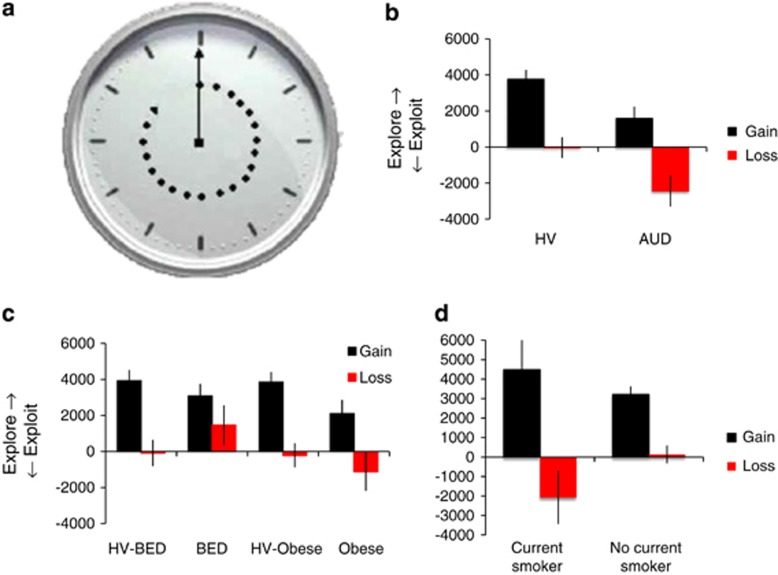Figure 1.
Exploratory behavior in disorders of natural and drug rewards. (a) Participants viewed a rotating clock and were instructed to stop the clock in order to win money or avoid losing money. The time at which the clock was stopped determined how much was won or lost. Exploratory choices are those that had not been previously sampled. (b) Explore–exploit index (represented in units of milliseconds per unit SD of the belief distributions) in alcohol use disorders (AUD) was lower than matched healthy volunteers (HV) (group effect; p=0.003). (c) Comparing obese subjects with binge-eating disorder (BED) and without (obese) with matched HV revealed no group differences. Comparing BED and obese revealed a group difference (p=0.04) when controlled for age, gender, and smoking status. (d) Comparing current smokers and non-smokers in HV revealed a group × valence interaction (p=0.03).

